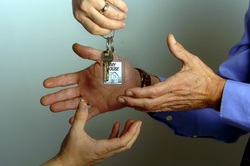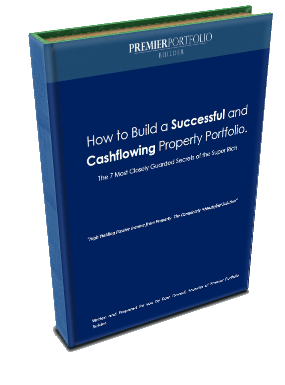House prices have risen at their fastest rate this year, with Welsh properties showing strongest growth

Wales recorded the strongest annual house price growth of all the UK nations.
According to figures released today, England saw a 3.3% rise while property prices here jumped by 4.3%.
House prices have risen at their fastest rate this year so far according to official figures which add to mounting evidence that the property market is bursting back into life.
Prices rose by 3.1% year-on-year in June to £242,000 on average, marking the strongest annual upturn recorded by the Office for National Statistics (ONS) in the last six months.
On a monthly basis, values rose by 0.4%, equalling the increase recorded in May.
House prices in London have soared by 8.1% year-on-year, but growth remained patchy and in Scotland and Northern Ireland prices edged down by 0.9% and 0.4% respectively.
The report was released as the Royal Institution of Chartered Surveyors (Rics) said it saw house prices rise at their fastest pace since their 2006 peak last month.
And yesterday, mortgage lenders said that the number of buyers climbing onto the property ladder for the first time is at its highest level since the financial crash in 2007.
A string of reports have pointed to a buzz in housing market activity following the launch of various government schemes such as Funding for Lending and Help to Buy which have helped to unblock the housing market by making it easier to access a mortgage.
However, some experts warned that the Government’s schemes could come back to “bite” and fears been raised that the measures could lead to a property bubble, with borrowers over-stretching themselves.
The ONS figures showed that the average price paid by a first-time buyer has risen by 3.9% over the last year to reach £182,000.
Matthew Pointon, a property economist at Capital Economics, said: “Government boasts that their schemes to pump more credit into the housing market are now bearing fruit may soon come back to bite them, as housing costs become even more of a burden on stretched household finances.
According to figures released today, England saw a 3.3% rise while property prices here jumped by 4.3%.
House prices have risen at their fastest rate this year so far according to official figures which add to mounting evidence that the property market is bursting back into life.
Prices rose by 3.1% year-on-year in June to £242,000 on average, marking the strongest annual upturn recorded by the Office for National Statistics (ONS) in the last six months.
On a monthly basis, values rose by 0.4%, equalling the increase recorded in May.
House prices in London have soared by 8.1% year-on-year, but growth remained patchy and in Scotland and Northern Ireland prices edged down by 0.9% and 0.4% respectively.
The report was released as the Royal Institution of Chartered Surveyors (Rics) said it saw house prices rise at their fastest pace since their 2006 peak last month.
And yesterday, mortgage lenders said that the number of buyers climbing onto the property ladder for the first time is at its highest level since the financial crash in 2007.
A string of reports have pointed to a buzz in housing market activity following the launch of various government schemes such as Funding for Lending and Help to Buy which have helped to unblock the housing market by making it easier to access a mortgage.
However, some experts warned that the Government’s schemes could come back to “bite” and fears been raised that the measures could lead to a property bubble, with borrowers over-stretching themselves.
The ONS figures showed that the average price paid by a first-time buyer has risen by 3.9% over the last year to reach £182,000.
Matthew Pointon, a property economist at Capital Economics, said: “Government boasts that their schemes to pump more credit into the housing market are now bearing fruit may soon come back to bite them, as housing costs become even more of a burden on stretched household finances.
“Meanwhile, more credit flowing into property means there is less available for the the part of the economy that really does need it – businesses.”
Rics said the West Midlands and the North East, which have “suffered the most” since the market crash, have seen the biggest recent upswings in buyer activity.
The ONS figures showed that house prices in the West Midlands saw the biggest annual increase of the English regions after London, with a 3.1% rise there topping the 2.9% increase recorded in the South East.
Peter Bolton King, Rics global residential director, said: “It is clearly good news that those parts of the property market that were struggling are at last showing some signs of life.”
A mortgage price war has broken out with lenders offering some of their lowest ever rates. Figures from the Council of Mortgage Lenders yesterday showed a record take-up by borrowers of fixed-rate mortgages.
Some mortgage experts have been advising that with the prospect of interest rates remaining at their historic lows for some years, borrowers should be considering longer-term fixed-rate products such as five-year deals to lock in cheap rates for longer.
Communities Minister Brandon Lewis insisted that what is generally happening in the housing market is good news.
He told the BBC Radio 4 Today programme: “There’s a real historical situation in our country where the house is probably the biggest asset anybody owns.
“It’s certainly one of the most expensive for most people and therefore they want to believe and understand they’ve got strong equity in that and good value in it.”
When asked if it is bad news for the UK if house prices increase because not enough properties are built, Mr Lewis said: “If house prices are going up purely because we haven’t built enough homes and that delays people getting into a new home then that in itself is not a good thing.
“That’s why it’s important that we have brought in this whole structure of measures to make sure firstly the new homes are getting built – nearly 320,000 over the last couple of years – and also that people have got access to finance to buy that first home.”
Rics said the West Midlands and the North East, which have “suffered the most” since the market crash, have seen the biggest recent upswings in buyer activity.
The ONS figures showed that house prices in the West Midlands saw the biggest annual increase of the English regions after London, with a 3.1% rise there topping the 2.9% increase recorded in the South East.
Peter Bolton King, Rics global residential director, said: “It is clearly good news that those parts of the property market that were struggling are at last showing some signs of life.”
A mortgage price war has broken out with lenders offering some of their lowest ever rates. Figures from the Council of Mortgage Lenders yesterday showed a record take-up by borrowers of fixed-rate mortgages.
Some mortgage experts have been advising that with the prospect of interest rates remaining at their historic lows for some years, borrowers should be considering longer-term fixed-rate products such as five-year deals to lock in cheap rates for longer.
Communities Minister Brandon Lewis insisted that what is generally happening in the housing market is good news.
He told the BBC Radio 4 Today programme: “There’s a real historical situation in our country where the house is probably the biggest asset anybody owns.
“It’s certainly one of the most expensive for most people and therefore they want to believe and understand they’ve got strong equity in that and good value in it.”
When asked if it is bad news for the UK if house prices increase because not enough properties are built, Mr Lewis said: “If house prices are going up purely because we haven’t built enough homes and that delays people getting into a new home then that in itself is not a good thing.
“That’s why it’s important that we have brought in this whole structure of measures to make sure firstly the new homes are getting built – nearly 320,000 over the last couple of years – and also that people have got access to finance to buy that first home.”


 RSS Feed
RSS Feed
